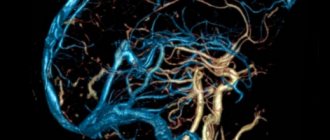How to get disability due to mental illness: list of diseases
During this visit, the patient or his legal representative must outline the essence of the problem. The doctor, having assessed the patient’s condition and made notes in the outpatient card, if necessary, can send the patient for examination and consultation with other specialists, and then choose further treatment tactics.
If at the time of visiting the doctor the patient is unable to work, he will be issued a certificate of temporary incapacity for work.
Depending on the condition of the patient, the doctor will designate a treatment regimen and the form of medical services (outpatient treatment, day care, 24-hour hospital).
If signs of the disease persist and there is no remission, despite the treatment taken, the patient, as a rule, is extended the certificate of incapacity for work and is admitted to a hospital for examination.
In order to make it easier for the doctor to provide the necessary assistance to the patient, the latter should not conceal the manifestations of his illness.
Personality disorder disability
If the patient is found to have acquired personality disorders, then a diagnosis of organic personality disorder is made in connection with mixed diseases. Organic psychopathy is diagnosed if the following signs are present: a significant, irreversible change in behavior in comparison with the pre-morbid state, which manifests itself mainly in the sphere of emotions, drives, needs, planning and foreseeing the consequences of one’s actions both for oneself and for society; a significant decrease in the ability for purposeful activities, especially those that require a significant investment of time and effort to achieve the goal; emotional instability with short-term bouts of anger and aggression that arise at the slightest with or without cause, euphoria or, conversely, apathy may also be noted; decreased cognitive activity; viscosity,
Childhood/atypical autism, Rett syndrome or Asperger syndrome
The category “disabled child” is assigned if at the same time:
- the pathopsychological syndrome is dominated by pronounced psychopathological symptoms that affect behavior, complicate adaptation, and are characterized by more complex forms of affective defense, which manifests itself in the formation of pathological drives and compensatory fantasies;
- the child’s speech is “stamped”, “stereotypical”;
- cognitive functioning, intellectual and social-communicative interactions are moderately impaired/not formed compared to the age norm;
- training and education is possible within the framework of state educational standards in general educational institutions using special teaching methods, a special training regime, including often in compliance with an individual regime of the learning process (learning at home) with the use, if necessary, of auxiliary technical means and technologies;
- the child needs psychological and pedagogical correction and psychosocial support.
The category “disabled child” is assigned if at the same time:
- pathopsychological syndrome is characterized by a pronounced manifestation of the replacement of adequate interaction and perception of the surrounding reality with specific methods of perception with a pronounced tendency to isolation;
- there are pronounced psychopathological symptoms affecting behavior, significantly complicating adaptation, characterized by a pronounced decrease in the level of focus of mental activity and behavioral disorders with a tendency to form the simplest stereotypical reactions and speech cliches;
- with adequate long-term correction, a child can master self-care skills and basic learning, which is only possible under the program of a special (correctional) educational institution, due to his need for constant psychological and pedagogical correction and psychosocial support;
- cognitive functioning, intellectual and social-communicative interactions are clearly impaired/not formed compared to the age norm.
Also, the category “disabled child” is assigned if at the same time:
- pathopsychological syndrome is characterized by significantly pronounced, deep disturbances in social and communicative behavior and significantly expressed psychopathological symptoms, causing secondary intellectual failure in combination with specific behavioral manifestations in the form of complete detachment from what is happening around, with possible frequent manifestations of auto-aggression, cases of self-harm, field behavior, mutism , aggressive behavioral manifestations, lack of formed adaptive forms of interaction (contacts) and perception of the surrounding reality in the absence of a need for them;
- self-care is not available to the child, with significant learning difficulties, which is possible only at the level of mastering basic skills and abilities in the usual everyday sphere;
- a significant impairment (immaturity) of cognitive functioning and intelligence against the background of an incurable (not treatable), total absence of social and communicative interactions, is extremely unfavorable in prognosis and requires constant psychosocial support.
Organic human personality disorder
They help maintain a stable self-esteem of the individual, as well as her ideas about the image of the world and herself. These are the mechanisms:
- Crowding out; Projection; Negation; Rationalization; Regression; Sublimation; Reactive formations.
In order to resolve internal conflicts that arise from time to time, a person usually uses a number of these mechanisms at once.
In the case when a person has an organic disorder of personality and behavior, the operation of these mechanisms is disrupted, as a result of which the person’s behavior becomes inadequate.
This pathology can be caused by a number of different diseases and injuries: Epilepsy; Repeated and severe single head injuries; Encephalitis; Organic personality disorder in children is provoked by cerebral palsy, with associated somatic disorders.
Causes
The causes of schizotypal disorder literally lie in the genes. The disease, like schizophrenia, is an endogenous pathology that is inherited.
Very often it is possible to establish that one of the blood relatives of such a patient suffered from schizophrenia, affective disorders, or was distinguished by eccentricities and oddities.
When a patient comes to the attention of psychiatrists and close relatives begin to visit him, often one of them is distinguished by inappropriate, conspicuous behavior.
According to ICD-10, diagnosis is carried out on the basis of the characteristic signs of schizotypal disorder, which I will give you:
- various oddities and peculiarities are observed in a person’s behavior and appearance, egocentrism is possible;
- excessive suspicion is characteristic, paranoid ideas can be traced;
- the person looks aloof, he is emotionally cold, and his reactions are often inadequate;
- one can note the impoverishment of contacts, a tendency towards social withdrawal;
- there are strange views and beliefs that are not consistent with generally accepted norms, thinking can acquire a magical character, that is, a person begins to associate many absolutely natural things with the influence of some magical forces, which is incomprehensible to others;
- the thinking of such people can acquire an overly detailed, amorphous, detailed character;
- There may be perceptual anomalies such as body illusions, derealization, or depersonalization;
- various obsessions are noted, the distinctive feature of which is the absence of internal resistance;
- without external provocation, rare episodes of hallucinations (most often auditory), illusions, and delusional ideas may be observed.
It is not necessary for a person to have all of these symptoms of schizotypal disorder, it is enough that 4 or more of the signs I listed above have been observed for at least 2 years.
To make a diagnosis of schizotypal disorder, it is first necessary to rule out schizophrenia.
In the current International Classification of Diseases, 10th revision (ICD-10), schizotypal disorder is coded as F21.
Personality disorder disability
Remember that if you decide to apply for disability, then you do not need to hide the essence of your illness; tell your doctors about all your problems. Also tell us why you developed the disease and what you think is your ability to work.
The doctor should record all this information in your outpatient card.
After the examination, you will be given a referral for a medical and social examination (MSE).
certified by the seal and signature of the head physician. The next step will be a visit to the ITU office, where they will set a date for the examination. After passing the ITU, you will be diagnosed with a disability or denied it.
If you do not agree with the decision of the commission, then you have the right to appeal this decision by writing a statement to the ITU main bureau.
In addition, you have the right to conduct an independent examination, where the doctors examining you will have nothing to do with the ITU.
And, at the end
Is the diagnosis of organic personality disorder a disability?
Rehabilitation must be pathogenetically substantiated, differentiated in each specific case and strictly individual.
We recommend reading: Is it possible to get a refund for tuition if you have made a property deduction?
Medical rehabilitation measures: rehabilitation therapy: drug treatment - regular 2-4 times a year courses of pathogenetic therapy; therapy for major maladaptive syndromes (anticonvulsants, antidepressants, behavior correctors, etc.); physiotherapy; massage; physiotherapy.
We are constantly under treatment from a neurologist, have worked with psychologists and a speech therapist. What to expect in the future - disability? recognition as incompetent? I understand that no one can give an accurate forecast now, but at least in general terms, what should we prepare ourselves for?
The children's nervous system and psyche are very plastic. Therefore, the prognosis in children is often much better than with similar lesions in adults. Therefore, I would not talk in advance about disability, incapacity, etc.
d.
Differential diagnosis
Differential diagnosis of schizotypal disorder is most often carried out with schizophrenia, obsessive-compulsive disorder, and schizoid psychopathy.
Differences from schizophrenia
Why was the disease, previously called sluggish schizophrenia, given the name schizotypal disorder and separated into a separate category? Everything is very simple. The fact is that with schizotypal disorder, although personality changes develop, they never reach the same depth and severity as in schizophrenia, and deep emotional devastation never occurs. That is why these 2 pathologies were differentiated.
Schizotypal personality disorder is considered as a slow and relatively favorably developing psychosis of the endogenous circle. That is, a person with this diagnosis can lead an almost normal life, maintain social adaptation, work, and will not become deeply disabled, in need of outside help and supervision, as happens with schizophrenia.
With schizotypal disorder there will never be persistent delusions or prolonged vivid hallucinations. Although thinking disorders may occur, in general thinking will be preserved.
OCD and schizotypal disorder
Obsessive-compulsive disorder (OCD) is similar to schizotypal disorder in that both pathologies are characterized by the occurrence of various compulsions.
In the early stages of schizotypal disorder, the symptoms of the disease are nonspecific, and obsessions (thoughts, ideas, actions) may be almost the only symptom. However, as the disease develops in schizotypal disorder, internal resistance to these obsessions will be lost, they will no longer be so painful for the person. Over time, other symptoms that are more characteristic of the schizophrenia spectrum will begin to appear - emotional coldness, thinking disorders, psychopathic-like symptoms, etc.
With obsessive-compulsive disorder, criticism of one’s condition and existing obsessions will persist constantly, the person will understand all the “abnormality” of his condition.
Schizoid and schizotypal disorders
Schizoid personality disorder (psychopathy) has some similarities with schizotypal disorder. People suffering from both pathologies are distinguished by eccentricity, self-centeredness, emotional coldness, and are incomprehensible to others. There may be autism, paradoxical emotions and behavior, one-sided interests, and difficulties in contacting people.
In adolescence, adolescence, and even in youth, significant difficulties may arise in the differential diagnosis of these two mental pathologies, but over the years, the differential diagnosis will become easier, because with schizotypal disorder, specific symptoms appear over time.
Organic personality disorder.
I saw her from 2011 to 2014, epi activity persisted all the time, I went to see her for some part of the time during pregnancy, I didn’t drink anything except vitamin B12, and she said that there was nothing serious, that I didn’t have epilepsy, but something It looks like I don’t need drugs for epilepsy. There was a long period of time, I didn’t go to her, when it got worse I started going to her again, this was after giving birth, but there was no treatment, or rather, there were the same vitamins. For a whole year I again did not go to the doctor, but since 2020 I went, but only to the Regional one with a referral. I was again sent for an EEG and again this diagnosis. Conclusion of the examination (Throughout the entire recording, polytopic polymorphic epileptiform activity in the form of discharges of acute complexes is recorded -slow wave and complexes of delta waves with a frequency of 2-3 per second as bilaterally synchronous with an accent of amplitude values in the frontal leads,
Disability group for personality disorder
Order of the Ministry of Labor of Russia dated December 17, 2015 N 1024n This Order has an Appendix in the form of a table, which provides a quantitative (in percentage) assessment of the severity of various pathologies (diseases).
Disability is established at a percentage of 40% and above (with the simultaneous presence of general disability in the established categories). The specific disability group depends on the size of the percentage. 10-30% - disability is not established. 40-60% - correspond to the 3rd disability group.70 -80% - corresponds to the 2nd disability group. 90-100% - corresponds to the 1st disability group. 40-100% - corresponds to the category “disabled child” (for persons under 18 years old). As follows from the provisions of this Order N 1024n: in order to establish a disability for a patient, it is necessary to SIMULTANEOUSLY fulfill 2 conditions: 1. The presence of a percentage of 40% or higher in accordance with the Appendix to Order N 1024n. 2. The presence of life insurance as established by Order N 1024n
Case history F07.08 Org. Explosive psychoorg. sm, frequent dysphoria, epilepsy
Early development without features.
personality disorder genesis.
Born the youngest of 2 children. He grew and developed within normal limits. He was sociable, active, and excitable. Attended kindergarten. I went to school at the age of 7, graduated from 11 grades, grades “good”, “satisfactory”, and was the head of the class. His character was short-tempered and hyperactive. Military service in 1991-93 in
Moscow. Received a qualification as an accountant.
I tried to study at the institute to become a lawyer, but abandoned my studies. I changed many jobs, but could not stay anywhere for a long time due to rude behavior, conflicts with superiors and colleagues. Currently he does not officially work, he works part-time as a loader, repairs engines, and until 2013 he participated in fights without rules.
Mental retardation
I disability group is assigned when:
- moderate mental retardation with severe protracted psychotic states, severe affective disorders, behavioral disorganization, uncorrectable drive disorders, frequent epileptiform seizures, severe somatoneurological disorders and/or the need for constant care and supervision, IQ 35 - 49;
- severe mental retardation with the need for constant care and supervision, IQ 20 - 34;
- severe mental retardation with the need for constant care and supervision, IQ below 20;
- difficulty or impossibility of assessing the degree of intellectual decline due to concomitant diseases of the sensory organs, in severe behavioral disorders.
The government has named diseases that give the right to permanent disability
At the same time, the list of diseases remained a separate block with some changes, in which permanent disability will be established no later than two years after the initial recognition as disabled.
Lives in a civil marriage, from which he has a 12-year-old daughter. I have not previously contacted psychiatrists. Changes in the mental state are noted after military service, when affective mood swings first appeared, accompanied by alcoholism and psychopathic behavior.
A section has also appeared that specifies the indications and conditions under which the category “disabled child” will be assigned for a period of 5 years or until the age of 14.
We recommend reading: Service life of metal staircases
In addition, cases have been identified when it is possible to obtain disability through an absentee examination. Innovations in the rules also make it possible to make changes to the individual program of rehabilitation or habilitation of a disabled person without revising the disability group or the period for which it is established. “Thus, the possibility of determining the period for determining disability at the discretion of the ITU specialist will be excluded,” says the explanatory note to the resolution.
Thus, according to the list, upon initial application, permanent disability for children under 18 years of age will be established in the presence of the following diseases and conditions:
Specific and other disorders of learning/arithmetic, reading or spelling skills
The category “disabled child” is assigned when:
- moderate disorders with difficulties in school adaptation (it is possible to obtain a certain level of education within the framework of state educational standards in general educational institutions using special teaching methods, a special training regimen, using, if necessary, auxiliary technical means and technologies);
- severe disorders with difficulties in school adaptation (it is possible to obtain a certain level of education using only correctional programs in a specialized educational institution, at home, or using remote control and, if necessary, auxiliary technical means and technologies).
List of diseases for obtaining disability
hearing, sight, smell and touch. In accordance with the current legislation of the Russian Federation, today there is no specific list of diseases for which one or another disability group can be issued.
But, at the same time, when establishing disability status and the degree of disability, MSEC authorities are guided by the following criteria:
- according to the specificity of the disease, as a result of which a person is partially or completely unable to ensure full-fledged life activities;
- according to the severity of the disease;
- for the reasons for the occurrence of the disease (congenital health disorder, domestic or work injury, injury received as a result of combat operations, etc.).
- according to the restrictions that the disease imposes on a person’s ability to care for himself;
Also, the medical and social expert commission evaluates
Prevention
Given the endogenous nature of the disease, it is almost impossible to prevent the occurrence of mental disorders.
Attacks of the disease can be provoked from the outside. Severe stress, somatic illness, pregnancy and childbirth, or excessive physical activity can trigger another round of exacerbation. This must be understood and, if possible, avoid exposure to such factors in order to avoid exacerbations of the disease.
Treatment of schizotypal disorder should be carried out under the strict supervision of a psychiatrist.
Some people believe that schizotypal disorder can be left untreated because it does not develop as quickly as schizophrenia. And here lies the biggest mistake, because the disease causes enormous discomfort both to the person himself and to his loved ones.
Various obsessions, illusions, hallucinations, depressive experiences, psychopathic behavior, outbursts of aggression and many other symptoms are successfully corrected under the influence of modern drugs.
Can schizotypal disorder be cured? Unfortunately, this disease is chronic, and it has not yet been possible to develop drugs that could completely stop its development. But to significantly reduce the number and severity of exacerbations, slow down the progression, and reduce emotional and behavioral disorders is a feasible task.
Which drugs are most effective?
Neuroleptics come first. These drugs eliminate productive symptoms - hallucinations and delusions.
In the presence of depressive symptoms and various obsessions, the use of antidepressants is indicated.
The choice of drug, dose and frequency of administration should be made individually by a psychiatrist. There can be no talk of any self-medication.
For what diseases is disability given, a detailed list?
How disability is determined and what are the criteria for determining groups is described in detail in the article below. For which diseases are disability given (list)? According to the provisions of Article 1 of the Law “On Social Protection of Disabled Persons in the Russian Federation” No. 181-FZ of November 24, 1995, a disabled person is a person who has a health disorder associated with a disorder of body functions.
Therefore, there is no specific list of diseases that give the right to disability - the basis for obtaining it is not the presence of pathology as such, but the dysfunction of organs caused by it, such as: mental disorders (intelligence, consciousness, memory, thinking, etc.); speech or language disorders (lack of voice production (muteness), impaired oral or written speech, etc.)
d.); sensory disorders (impaired hearing, vision, as well as various types of sensitivity - pain, tactile, etc.)
Treatment
In the absence of proper treatment, the patient faces disability or even death. Therefore, therapy should begin as early as possible and be carried out in full. Treatment is based on the introduction of nootropics such as phenibut, nootropil, aminalon and others, in combination with medications that help establish impulse control - carbamazepine , lithium salts, beta blockers and small doses of antipsychotics . In the case of complete treatment of a disease such as personality disorder, its prognosis can be favorable.
Video about personality disorder
Medical and social examination
Neuroses are understood as psychogenically caused neuropsychic functional disorders that arise as a result of the inability to resolve life’s difficulties. Among neuroses, it is customary to distinguish between neurasthenia, hysteria, psychasthenia and obsessive-compulsive neurosis. Neurasthenia is characterized by increased exhaustion during physical and mental stress, weakness, fatigue, emotional lability, and irritability.
The mood of patients is constantly reduced, there are a variety of vague unpleasant somatic sensations, against the background of which a hypochondriacal mood arises. In the formation of neurasthenia, not only overwork is of great importance, but also various difficult situations that sometimes lead to elements of “flight into illness” and avoidance of searches ways to resolve them. When the conflict situation is exhausted or overwork goes away after rest and treatment, serious
Disability due to mental illness
If the prognosis is unfavorable, after 4 months the patient is subject to referral for a medical and social examination (MSE) to establish disability. After the examination, there are three possible scenarios:
- They refuse to recognize you as a disabled person and recommend that you go to work.
- They are sent for further treatment or additional examination to a medical institution with an appearance at the commission later.
- The patient is given disability of the first, second or third group.
When people of retirement age or their relatives seek help, the doctor assesses the degree of mental dysfunction and recommends a course of treatment for 4 months.
More often these are patients with toxic, vascular or atrophic brain lesions (after strokes, arterial hypertension, Alzheimer's disease, chronic alcoholism).
Schizophrenia
When diagnosing episodic relapsing-remitting schizophrenia and schizoaffective disorders, the following is assigned:
- Disability group II - if the disease is accompanied by prolonged/frequent attacks with a total duration of 10 months or more, maladjustment in the main areas of life;
- Disability group III - if the disease is accompanied by 1-2 attacks per year with a total duration of 4 or more months, remission with residual symptoms that negatively affect adaptation in the main areas of life.
When diagnosing episodic schizophrenia with a stable/increasing defect, the following is assigned:
- Disability group I - if the disease is accompanied by an attack lasting more than 10 months or significantly expressed deficiency symptoms, as well as gross personality changes with a lack of criticism of the condition, the need for constant care and supervision;
- Disability group II - if the disease is accompanied by an attack lasting more than 6 months or incomplete remission with residual symptoms resistant to therapy, severe deficiency symptoms, endogenous personality changes, decreased criticism, maladjustment in the main areas of life;
- Disability group III - if the disease is accompanied by attacks lasting more than 4 months, incomplete remission with moderate deficiency symptoms, affecting adaptation in the main areas of life.
Separately, when diagnosing paranoid/residual schizophrenia of an episodic type with a stable/increasing defect, the following is assigned:
- Disability group I - if the disease is accompanied by significantly pronounced productive symptoms and/or significantly expressed negative symptoms and personality changes, lack of criticism, and the need for constant care and supervision;
- Disability group II - if the disease is accompanied by severe productive and/or severe negative symptoms, with pronounced personality changes, decreased criticism, and social maladjustment;
- Disability group III - if the disease is accompanied by productive, moderate negative symptoms, personality changes and decreased criticism, complicating social adaptation, with deficit symptoms.
When diagnosing schizophrenia of a continuous type, the following is assigned:
- Disability group I - if the disease is accompanied by a highly progressive process with the rapid formation of a persistent, significantly pronounced defect, with the need for constant care and supervision;
- Disability group II - if the disease is accompanied by a highly progressive process with the rapid formation of a persistent pronounced defect and social maladjustment.
Since it is practically impossible to make prognoses in the case of mental illness, the task of assigning a group to the panel is extremely difficult. Each specific case is analyzed separately, the degree of disability, problems with social adaptation, and the persistence of remission are taken into account.









